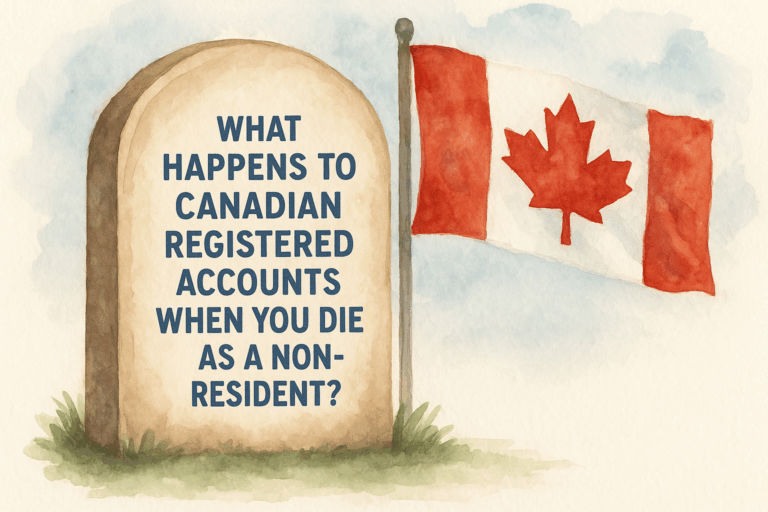
For individuals with financial ties in both the United States and Canada, managing cross-border taxes can be complex and time-consuming. Filing requirements often involve numerous forms, each serving a specific purpose to ensure compliance with U.S. and Canadian tax authorities.
With a solid understanding of these forms, cross-border taxpayers can better navigate their obligations, avoid penalties, and even reduce their overall tax burden. Below, we’ll explore the most common forms involved in cross-border tax preparation, including what each form is used for and who needs to file it.
1. Form S216 (Canada): Election to Pay Tax on Net Rental Income
Purpose: This form allows non-residents earning rental income from Canadian property to pay tax on their net income (after deductions) rather than on the gross rental income, which is otherwise subject to a flat withholding tax rate. U.S. residents must also hire an agent to manage the property, collect rents, and submit the net rents to the CRA.
Who Must File: U.S. and other non-residents earning rental income from Canadian property who wish to report on a net basis.
2. Form T2062 (Canada): Disposition of Canadian Property by Non-Residents
Purpose: Non-residents who sell taxable Canadian property, such as real estate, must report the disposition using Form T2062. This process ensures non-residents pay the appropriate capital gains tax under Canada’s Section 116 requirements.
Who Must File: Non-residents of Canada, including U.S. residents, who sell Canadian real estate or other taxable property.
3. Form 8833 (U.S.): Treaty-Based Return Position Disclosure
Purpose: U.S. taxpayers claiming tax treaty benefits, such as the Canada-U.S. Tax Treaty, may need to disclose these treaty-based positions using Form 8833. It ensures transparency when a taxpayer reduces U.S. taxes based on a tax treaty.
Who Must File: U.S. taxpayers using tax treaties to reduce taxes on foreign income. This form is commonly used by U.S. citizens residing in Canada.
4. Form 5471 (U.S.): Controlled Foreign Corporation Reporting
Purpose: This form reports ownership interests in a Controlled Foreign Corporation (CFC) and requires U.S. taxpayers to disclose their foreign corporation’s income, activities, and tax payments to the IRS.
Who Must File: U.S. citizens or residents with significant ownership (usually 10% or more) in a foreign corporation. This is especially relevant for U.S. persons with Canadian corporations.
5. Form 8621 (U.S.): Passive Foreign Investment Company (PFIC) Reporting
Purpose: PFIC rules apply to foreign investments that generate mostly passive income, such as mutual funds and ETFs held outside the U.S. Form 8621 is used to report income from these investments and is essential to prevent U.S. taxpayers from deferring tax on foreign passive income.
Who Must File: U.S. citizens and residents with investments in foreign mutual funds, Canadian ETFs, or other foreign pooled investments classified as PFICs.
6. Form 3520 and Form 3520-A (U.S.): Reporting Foreign Trusts
Purpose: Form 3520 is used to report large gifts, inheritances from foreign persons, and interactions with foreign trusts, while Form 3520-A is an annual report of the foreign trust itself. Many Canadian Tax-Free Savings Accounts (TFSAs) and Registered Education Savings Plans (RESPs) are considered foreign trusts for U.S. tax purposes.
Who Must File: U.S. persons who own or receive income from foreign trusts or large foreign gifts. This requirement previously affected U.S. citizens in Canada who hold TFSAs, RDSPs and RESPs but these forms are no longer required for those tax-favored accounts.
7. Form T1134 (Canada): Reporting Foreign Affiliates and FAPI
Purpose: This form is used by Canadian residents who have ownership in foreign affiliates (i.e., corporations) to report income, assets, and activities. If the foreign affiliate earns Foreign Accrual Property Income (FAPI), Canadian taxpayers must report this income.
Who Must File: Canadian residents with ownership in foreign corporations. This form is especially important for Canadians with U.S. or other foreign corporate interests generating passive income.
8. Form 8288 (U.S.): FIRPTA Withholding for Foreign Real Estate Sales
Purpose: Under the Foreign Investment in Real Property Tax Act (FIRPTA), foreign persons who sell U.S. real estate are subject to tax withholding. Form 8288 reports the withholding, ensuring the IRS receives taxes owed on the sale.
Who Must File: Foreign individuals, including Canadians, who sell U.S. real estate.
9. Form T1135 (Canada): Foreign Income Verification Statement
Purpose: Canadians with foreign assets valued over CAD 100,000 must report these holdings on Form T1135. This form is used to report income-generating assets, such as stocks, rental properties, and foreign bank accounts, to ensure transparency and tax compliance.
Who Must File: Canadian residents with substantial foreign assets, including U.S. or other foreign holdings. U.S. qualified accounts are exempt from T1135 reporting.
10. Form 8854 (U.S.): Expatriation Statement
Purpose: U.S. citizens who renounce citizenship or long-term residents who give up their U.S. residency status must file Form 8854 to declare their income, assets, and net worth to determine if they owe expatriation tax.
Who Must File: U.S. citizens or long-term residents expatriating from the United States, including former U.S. citizens who become Canadian residents.
11. Form 8938 (U.S.): Statement of Foreign Financial Assets
Purpose: This form is required for U.S. taxpayers with foreign financial assets above certain thresholds, ensuring the IRS receives full details of offshore assets. This requirement complements the FBAR form (see below) but has different thresholds and reporting requirements.
Who Must File: U.S. citizens and residents with foreign financial assets exceeding IRS thresholds, which vary based on filing status and residency.
12. FBAR (FinCEN Form 114): Report of Foreign Bank and Financial Accounts
Purpose: FBAR requires U.S. persons with foreign financial accounts valued over $10,000 at any time during the year to report them to the Financial Crimes Enforcement Network (FinCEN). The goal is to deter tax evasion and improve financial transparency.
Who Must File: U.S. citizens, residents, and entities with foreign financial accounts exceeding $10,000.
Summary Table: Key Cross-Border Tax Forms
| Form | Country | Purpose |
| Form S216 | Canada | Allows non-residents to pay tax on net rental income |
| Form T2062 | Canada | Reports sale of Canadian property by non-residents |
| Form 8833 | U.S. | Discloses treaty-based tax positions |
| Form 5471 | U.S. | Reports Controlled Foreign Corporation information |
| Form 8621 | U.S. | Reports Passive Foreign Investment Company (PFIC) holdings |
| Form 3520/3520-A | U.S. | Reports foreign trust activities, including TFSAs/RESPs |
| Form T1134 | Canada | Reports foreign affiliates and FAPI |
| Form 8288 | U.S. | FIRPTA withholding for foreign sellers of U.S. real property |
| Form T1135 | Canada | Reports foreign assets exceeding CAD 100,000 |
| Form 8854 | U.S. | Expatriation statement for former U.S. citizens/residents |
| Form 8938 | U.S. | Reports foreign financial assets (FATCA requirement) |
| FBAR (FinCEN 114) | U.S. | Reports foreign bank accounts over $10,000 |

Cross border taxation requires understanding and completing various forms to ensure compliance with Canadian and U.S. tax laws. Each form serves a distinct purpose, from reporting foreign assets and income to claiming tax treaty benefits.
For individuals navigating both U.S. and Canadian tax obligations, working with a cross-border tax specialist can simplify compliance and help maximize available tax benefits while avoiding potential penalties.
By knowing the purpose and filing requirements of these key forms, those crossing or straddling the 49th parallel can ensure that they meet their obligations while optimizing their financial strategies in both countries. Reach out to see how we can help. From the Desert to the Tundra, we are your cross-border retirement experts!



